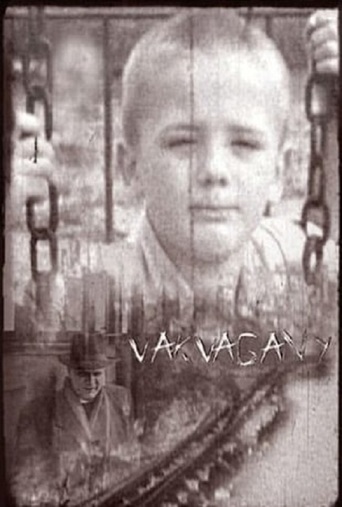

I first came across a reference to this film last year on James Ellroy's website. It sounded intriguing, and I awaited it's release with great anticipation. I was, however, quite disappointed. What we have here is some grainy home movie footage intercut with some specious analysis by Ellroy, the late Dr. Roy Menninger, and the late Stan Brakhage, commenting upon some questionable goings-on among members of the Locsei family in Hungary after WWII. Filmmaker Meade tracks down the siblings in the film (Erno and Etruska) for their comments. This is where 'dreadful' begins: Erno is a mentally disabled, unwashed alcoholic; we are treated to several scenes of him drinking wine the filmmakers have provided to secure his cooperation, long stretches of untranslated Hungarian, and a charming scene of urination in a field. Sister Etruska has her home broken into by the filmakers. We watch her shielding her face from the camera while she repeatedly demands they not invade her privacy. I cannot imagine the cruelty, or at least indifference, that would motivate anyone to pursue this material, much less offer it up for public consumption.I have viewed other user comments to this film, and appear to be in the minority. But if you like films about disturbed individuals, I suggest Errol Morris' MR DEATH instead.
... View MoreIn this admittedly controversial but thought provoking film, Benjamin Meade follows a trail to unlock the mystery posed by old `home movie' footage that he purchased in Hungary. There is something unsettling about these home movies, one scene depicting what appears to be piles and piles of tagged pieces of jewelry. This immediately makes one wonder how a person would come to possess this type of thing right after WWII? Is there a connection to the death camps? Meade taps film expert Stan Brakhage, psychiatrist Dr. Roy Menninger and mystery writer James Ellroy for their interpretations of this odd family footage, but it is the tracking and finding of the (now grown) children who appeared in the original home movies themselves that truly takes this film into bizarro land. The audience members' reactions to this brother and sister are the meat 'n potatoes of this film. Do the sins of the father visit the houses of the children? Well........... do they? Georgia Mueller
... View MoreThis is a film that deserves much more attention then it will probably ever receive. "Vakvagany" is at different times disturbing, thought-provoking, and hilarious. It is a documentary done by a relatively unknown director, and yet it is not only as good as any documentary film you will ever see, but to its great credit, it is also probably as accessible to a mainstream audience as a film like this could be. Hopefully the inclusion in the film of the renowned author and personality James Ellroy (at his wry best) will create an audience for the film; it has a timelessness about it that should allow it to sustain its relevance and impact over time. Three different perspectives about a series of remarkable old "home movies" that were discovered in a decrepit apartment in Hungary are provided by a filmmaker, a psychologist, and an author. Their vastly contrasting input provides the perfect framework for the astonishing footage that is the foundation of this film. The decision by the director Benjamin Meade to splice the comments of a panel of interviewees with disparate perspectives about a central subject reminded me of Errol Morris's great film "Fast, Cheap, and Out of Control."
... View MoreThe dark heart of Benjamin Meade's "Vakvagany" consists of creepy home movies, filmed sometime between 1948 and 1964, purportedly stolen from a filthy house in Hungary that was said to be crawling with cats."Vakvagany" zig-zags through time, sampling the stolen family films, juxtaposing them with newly-filmed footage of the old movies' still-living participants, and interviews with three spirit guides who offer their take on lurid life with the family depicted in the old and new footage: crime novelist James Ellroy (of "L.A. Confidential" fame) , psychiatrist Dr. Roy Menninger and filmmaker Stan Brakhage.The vintage films focus on life with the Locsei family, a Hungarian couple fond of filming one another and their eventual, ill-fated offspring.The setting for the `found' film is demolished, post-World War II Europe (much of the footage depicts damage done to cities during the war).The usual family moments are captured in the old family films, such as giving the new baby in the house a bath.But the camera lingers lasciviously long on naked son Erno, a cause for concern for `expert witness,' Dr. Roy Menninger, who seems increasingly to be wincing as the film (and the old family footage) unfolds. There are moments in Vakvagany - old and new - that are apt to make virtually any viewer, even the most jaded, wince, as well.Benjamin Meade's "Vakvagany" (or, variously, "Dead End") is eighty-plus minutes of very strange cinema. Love it or hate it, it is something new, and it feels dangerous and important.Meade has said he became enthralled with the vintage home movies and their potentially sinister subject matter: in particular, father Locsei's never clearly defined role in allegedly `helping' the European Jews fleeing Nazi Germany. The form this `help' takes is sufficiently vague to leave room for some very dark deductions regarding what exactly Papa Locsei does for a living that could be construed as `help' for potential Nazi victims.Director Benjamin Meade lets the viewer, and his three `experts,' attempt to decide (You know you're along for a strange, strange ride when noir novelist James Ellroy, notorious for his wild stage presence and book readings, tends toward the most mundane explanations for some very, very strange behavior.)The Alloy Orchestra, famed for its wonderful scores for vintage silent films, provides a haunting, beautiful soundtrack for "Vakvagany."While a sometimes disturbing view, Meade's film is a rewarding ride that can't be forgotten.
... View More